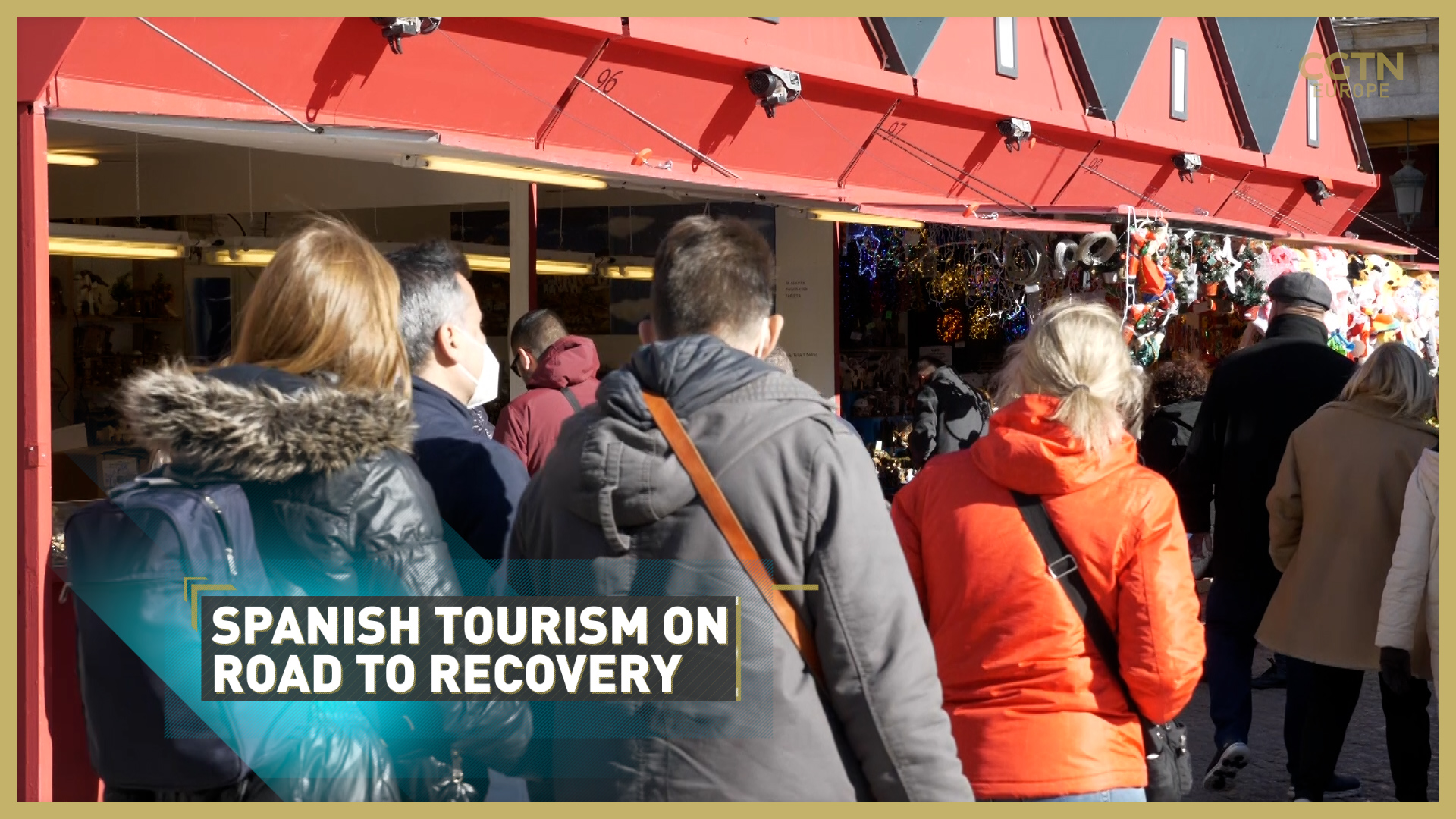It is another busy morning at the Room Mate Alba hotel in central Madrid. Occupancy levels are getting back up to where they were two years ago.
The majority of visitors here are foreigners coming to enjoy a city break and tourism figures show that Madrid, like the rest of Spain, has bounced back to two-thirds of its pre-pandemic levels.
02:10

Hospitality is in recovery from COVID-19
That has allowed the hospitality industry to finally get back on its feet and offer much-needed job opportunities to the economy.
One in eight people in Spain works in the sector.
Speaking to CGTN Europe, Room Mate Alba's Communications Director Yeyo Ballesteros said it had been difficult for the business.
"The past 18 months have been tough. But it has improved now. We are delighted to finally welcome back guests from both Spain and abroad. We want to serve our clients and for that, we need our staff. Thankfully, today most of our staff are now back at work," he said.
The tourism industry depends largely on the freedom of movement for those entering the country.
This year, that's been helped by the launch of a digital COVID-19 certificate and the global vaccination drive.
Forecasts show that next year could eventually see a return to the economic output last seen in 2019.
The customers
To help slow the transmission of new variants, tourist spots such as the Costa Blanca have insisted on COVID-19 certificates. Each region will continue to assess the situation and the government has pledged a series of funds through the European Union – up to $800 million – to help digitize the industry. But leading experts feel the most pressing issue is still the same.
Ramon Estalella is general secretary of the Spanish Tourism Confederation (CEHAT) and he told CGTN Europe the most pressing issue facing the industry was a psychological one.
"We had a huge fall in demand that happened because of the insecurity created by the pandemic. So, the only way to recover our industry is to recover demand. That will only be possible when people feel safe. We have to win the battle against COVID-19, regardless of which variant arises," he said.
Optimism in this era can be short-lived and any economic projections for 2022 will no doubt depend largely on how Europe tackles the immediate threat of any new coronavirus variants and what consequences they may bring.

